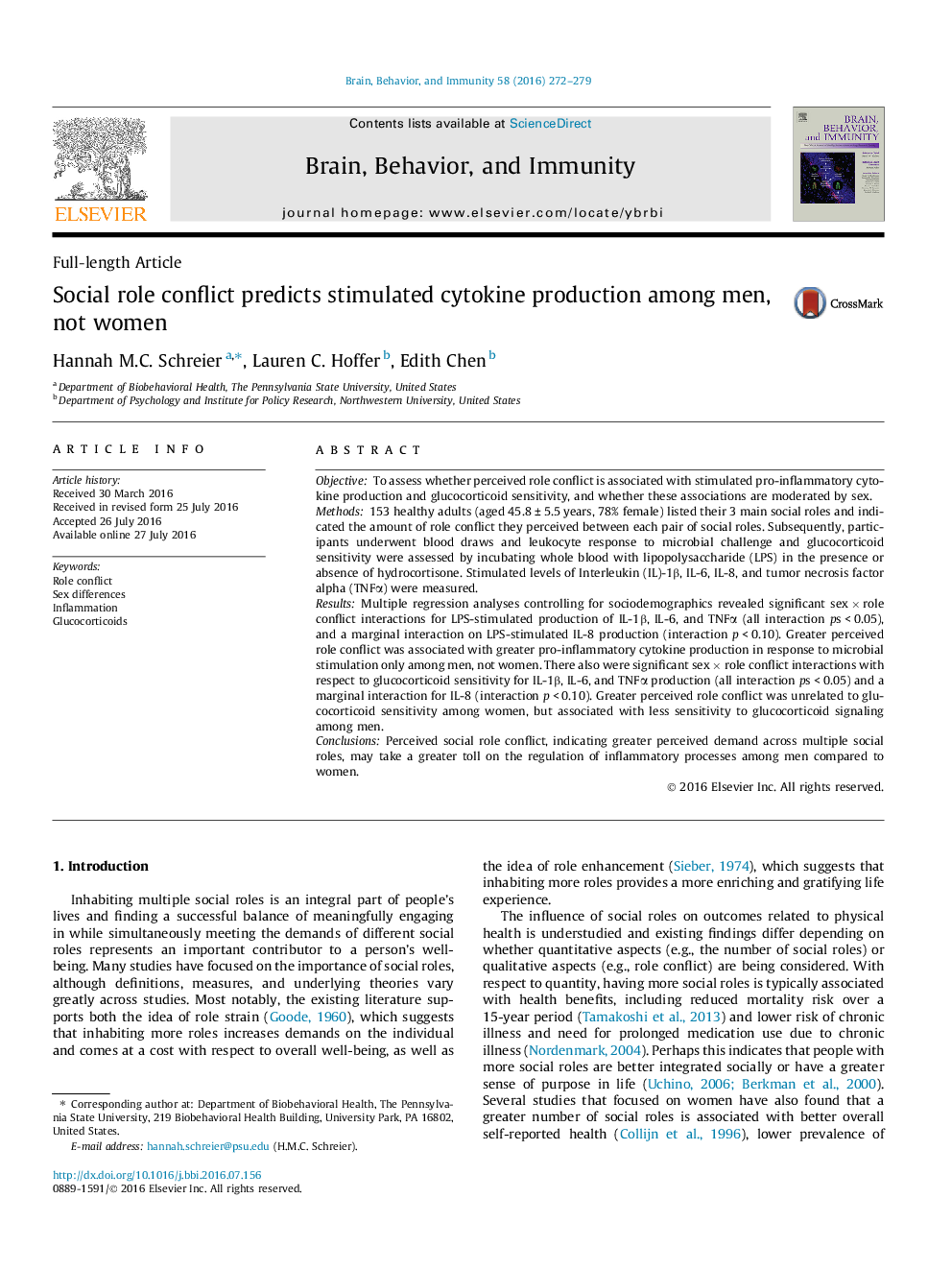| کد مقاله | کد نشریه | سال انتشار | مقاله انگلیسی | نسخه تمام متن |
|---|---|---|---|---|
| 5040989 | 1473909 | 2016 | 8 صفحه PDF | دانلود رایگان |
- Participants identified the most important roles and role conflict in their life.
- Among men only, greater role conflict predicted greater inflammation.
- Among men only, greater role conflict predicted less glucocorticoid sensitivity.
ObjectiveTo assess whether perceived role conflict is associated with stimulated pro-inflammatory cytokine production and glucocorticoid sensitivity, and whether these associations are moderated by sex.Methods153 healthy adults (aged 45.8 ± 5.5 years, 78% female) listed their 3 main social roles and indicated the amount of role conflict they perceived between each pair of social roles. Subsequently, participants underwent blood draws and leukocyte response to microbial challenge and glucocorticoid sensitivity were assessed by incubating whole blood with lipopolysaccharide (LPS) in the presence or absence of hydrocortisone. Stimulated levels of Interleukin (IL)-1β, IL-6, IL-8, and tumor necrosis factor alpha (TNFα) were measured.ResultsMultiple regression analyses controlling for sociodemographics revealed significant sex Ã role conflict interactions for LPS-stimulated production of IL-1β, IL-6, and TNFα (all interaction ps < 0.05), and a marginal interaction on LPS-stimulated IL-8 production (interaction p < 0.10). Greater perceived role conflict was associated with greater pro-inflammatory cytokine production in response to microbial stimulation only among men, not women. There also were significant sex Ã role conflict interactions with respect to glucocorticoid sensitivity for IL-1β, IL-6, and TNFα production (all interaction ps < 0.05) and a marginal interaction for IL-8 (interaction p < 0.10). Greater perceived role conflict was unrelated to glucocorticoid sensitivity among women, but associated with less sensitivity to glucocorticoid signaling among men.ConclusionsPerceived social role conflict, indicating greater perceived demand across multiple social roles, may take a greater toll on the regulation of inflammatory processes among men compared to women.
Journal: Brain, Behavior, and Immunity - Volume 58, November 2016, Pages 272-279
